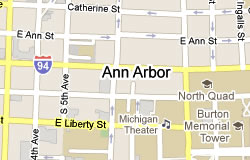Ann Arbor, Michigan Short Sales
Ann Arbor, Michigan Short Sales
Short Sales
Homes that are worth less than what is owed on them are often referred to as “underwater.” In many cases, a sharp decline in the market value of a house is what causes the house to become “underwater.”
Unfortunately, this is a situation many people in the United States now find themselves. If you are in this position, you may feel that the only option is to default on your mortgage and allow your house to be foreclosed. This is a terrible situation to face, since foreclosures are not only damaging to one’s credit, but also carry a harsh stigma.
However, there is another option you may want to consider: the short sale. “Short sale” is a term that is much publicized these days and here is its definition: it is a house that is paid in full for less than originally agreed upon. In other words, in a short sale the bank that owns your mortgage agrees to accept a discounted payoff in order to release you from your mortgage debt. Let’s examine short sales and whether this process may fit your situation.
Foreclosure Versus Short Sale
Allowing your home to be foreclosed upon has many difficult effects and a short sale may be a better option. A short sale is different than a foreclosure because the house is sold in the normal fashion, just like you would sell your home if it weren’t underwater. This means that you are in control of the sale, not the bank that owns your mortgage.
With a short sale, you can avoid the stigma of a foreclosure, as well as the impact a foreclosure will have on your credit. While short sales will adversely affect your credit rating, in most cases, a short sale will do far less damage than a foreclosure.
Short Sales for Sellers
In order to qualify for a short sale, you generally have to demonstrate that you are experiencing a financial hardship. A financial hardship can be the result of losing your job, mounting medical bills, or a death in the family. Regardless of the specifics, your lender, generally the bank that owns your mortgage, has to agree to the short sale. It may seem counterintuitive that a bank would agree to receiving less money than what is owed. However, in many instances it is easier and less costly to the bank to accept a short sale, than going through the hassle and expense of a foreclosure.
Ultimately, the bank will do what is best for the bank. But because it is often in the better interest of the bank to approve a short sale, it is certainly worth looking into. Even if you are current with your mortgage payments you may be eligible for a short sale, as long as your home is underwater.
Short Sales for Buyers
People looking to buy a home may seek short sale houses in order to get a good deal. In a perfect situation, everyone—the bank, the seller and the buyer—all “win” from a short sale. In other words, the bank is paid, not in full, but more than if the house were foreclosed; the seller doesn’t have to deal with the repercussions of a foreclosure; and the buyer gets a good deal on a house. However, as a buyer, there are risks with short sales, specifically a lengthy closing process due to documentation and other red tape.
An Experienced Agent is Key to Short Sale Success
While short sales are often more desirable than foreclosure, they are also very complicated. An inexperienced real estate agent may set the short sale price too high, which can deter potential buyers, thus putting the seller in danger of having to foreclose after all.
Similarly, if an agent sets the price too low, the profit from the sale may not satisfy the bank’s requirement for a short sale approval. In both cases, the seller risks foreclosure and the buyer risks a lot of wasted time trying to buy a house that ends up in foreclosure. Thus, choosing a real estate agent with ample short sale experience, such as Tom Stachler, will maximize the outcome of the short sale for both buyer and seller.
Not only is Tom very experienced with short sales, but he hold the CDPE designation. CDPE is the Certified Distressed Property Expert accreditation which is only obtained through training and certification.
If you are thinking about buying or selling a home, give us a call at (734) 996-0000 or send us an email to explore your options and to find out when is the best time for you to make a move.
